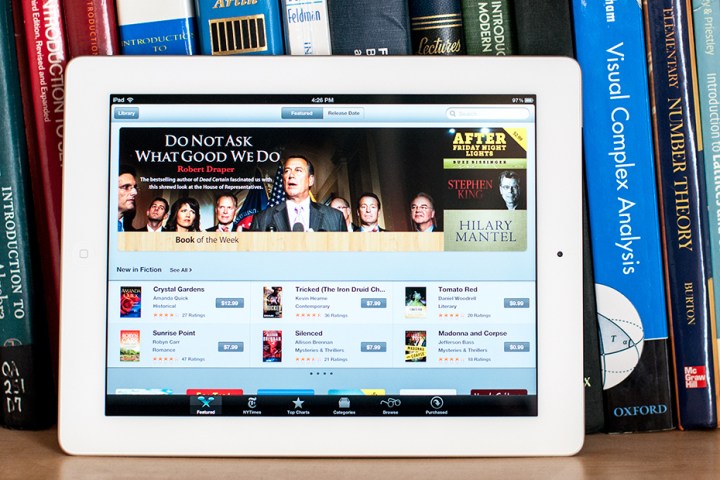
The research involved a survey of more than 300 college students from countries around the world, including Japan, Germany, Slovakia, and the U.S., and is all for Baron’s upcoming book — “Words Onscreen: The Fate of Reading in a Digital World.”
Despite the fact that 50 percent of Americans own a tablet or e-reader, and an even greater proportion own smartphones that can also support books and electronic reading materials, Baron has found that owning is not the same thing as enjoying the actual experience. Many people complain about e-readers hurting their eyes, the less-than-satisfactory battery life, and frankly, the rather impersonal feel of putting Jane Austen’s classics on a Kindle. In fact, it looks like the popularity of e-readers may actually be declining — a Scholastic study notes that while 60 percent of children between the ages of 6 and 17 said they’d always want to read books in print in 2012, this number increased to 65 percent just two years later.
“There really is a physical, tactile, kinesthetic component to reading,” Baron told the New Republic in a recent interview. “In the Slovakian data, when I asked what do you like most about reading in hard copy, one out of ten talked about the smell of books.”
And when she asked her study subjects what they didn’t like about reading on a screen, a lot of their answers had to do with the physical progress and satisfaction you get from reading a print book that just isn’t there with a Nook. “They like to know how far they’ve gone in the book,” Baron said. “You can read at the bottom of the screen what percent you’ve finished, but it’s a totally different feel to know you’ve read an inch worth and you have another inch and a half to go. Or students will tell you about their visual memory of where something was on the page; that makes no sense on a screen. One student said, ‘I keep forgetting who the author is. In a print book all I have to do is flip back and I see it.’ There are all kinds of reasons students will give — ‘I have a sense of accomplishment when I finish a book and I want to see it on the shelf.'”
Sure, e-readers serve their purpose, and Baron herself notes, “Generally speaking, if you give standardized tests on comprehension of passages, the results are about the same on a screen or on hard copy.” But when it comes to personal preferences, the printed book remains king.


